Winter may bring picturesque snowfalls and cozy evenings by the fire, but it also brings a host of plumbing challenges for home and building owners alike. Between frozen pipes and clogged drains, it’s crucial to be prepared for the common winter plumbing problems that could disrupt your life.
This blog will walk you through how to identify and tackle these issues, ensuring your home or building remains a sanctuary all season long.
1. Frozen Pipes
If you wake up on a chilly morning and find no water flowing from your taps, you might have frozen pipes.
How Can You Tell If Pipes Are Frozen?
The first sign is usually a lack of water flow, followed by frost on exposed pipes or strange noises coming from your plumbing.
When water freezes, it expands, putting immense pressure on the walls of your pipes. This pressure can cause pipes to crack or burst, resulting in costly repairs and water damage. Knowing the signs early can save you from a major inconvenience and financial strain.
Early detection can minimize damage. Feeling a pipe for frost or noticing a slow trickle instead of a steady stream are clear indicators. Regular checks and maintenance can make all the difference in preventing a minor problem from turning into a catastrophe.
How to Prevent Frozen Pipes
Preventing frozen pipes is all about preparation. Here are some key practices to prevent frozen pipes:
Insulate your plumbing: Insulating pipes in unheated areas like basements, attics, and crawl spaces can prevent them from freezing. Use foam pipe insulation, which is easy to install and can be cut to size. For added protection, combine insulation with heat tape, especially for outdoor pipes and those in colder areas of the house.
Maintain a safe internal temperature: Keeping your home’s temperature steady is key. Set your thermostat to at least 55°F, even when you're away. For additional peace of mind, open cabinet doors to allow warm air to circulate around pipes under sinks. Seal leaks around windows and doors to keep cold air out.
Winterize your plumbing systems: Winterizing your plumbing involves several steps to ensure your system is ready for the cold, especially for a vacation home that remains vacant during the colder months.
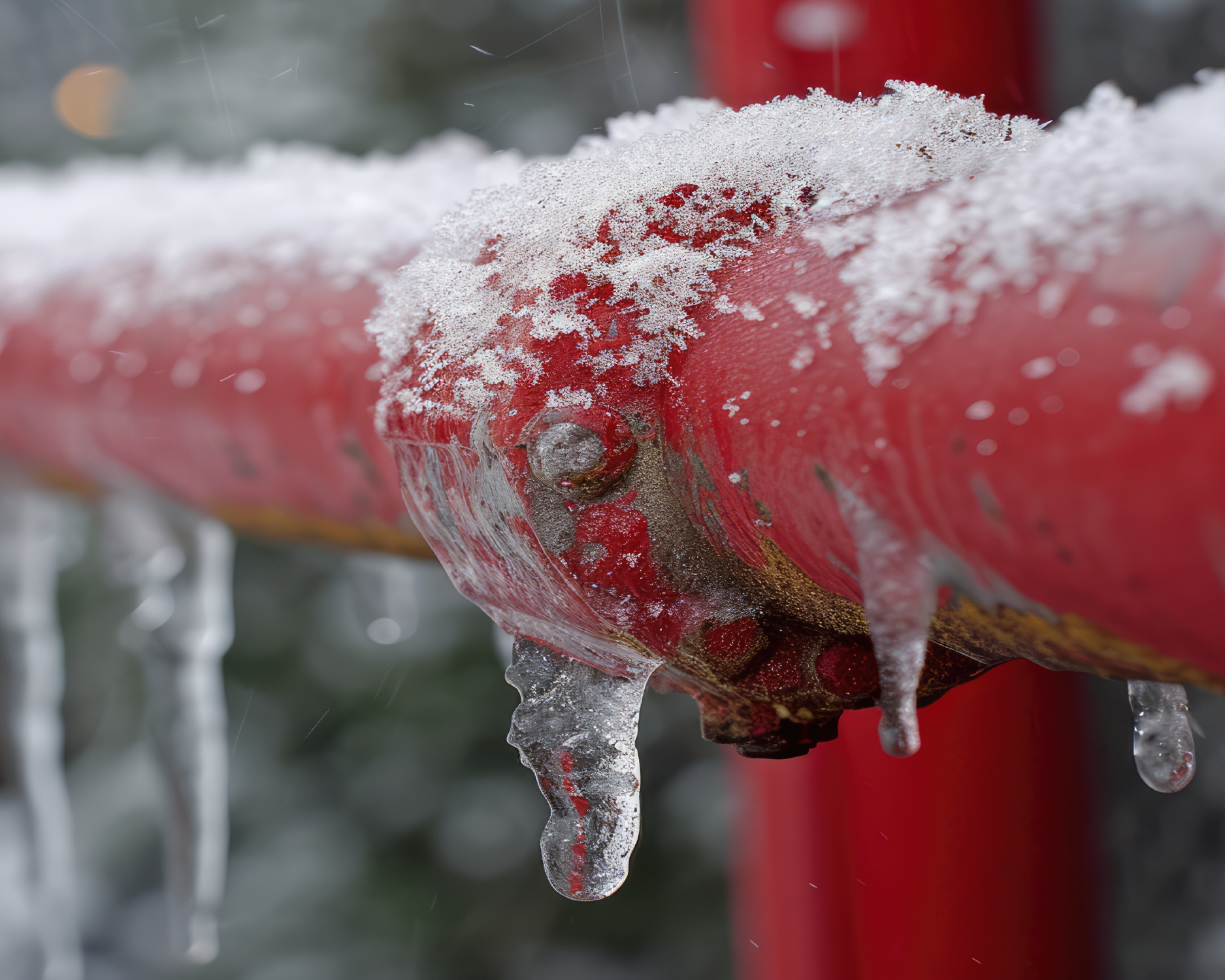
Drain outdoor faucets and disconnect hoses. Use Hercules® TFE Pipe Joint Tape to secure any potential leak areas. Hercules TFE Pipe Joint Tape is a low-density grade of polytetrafluoroethylene (PTFE) pipe joint tape. It is a weather-resistant, flexible, nonstick, nonflammable, and chemically inert tape that can be used at low temperatures.
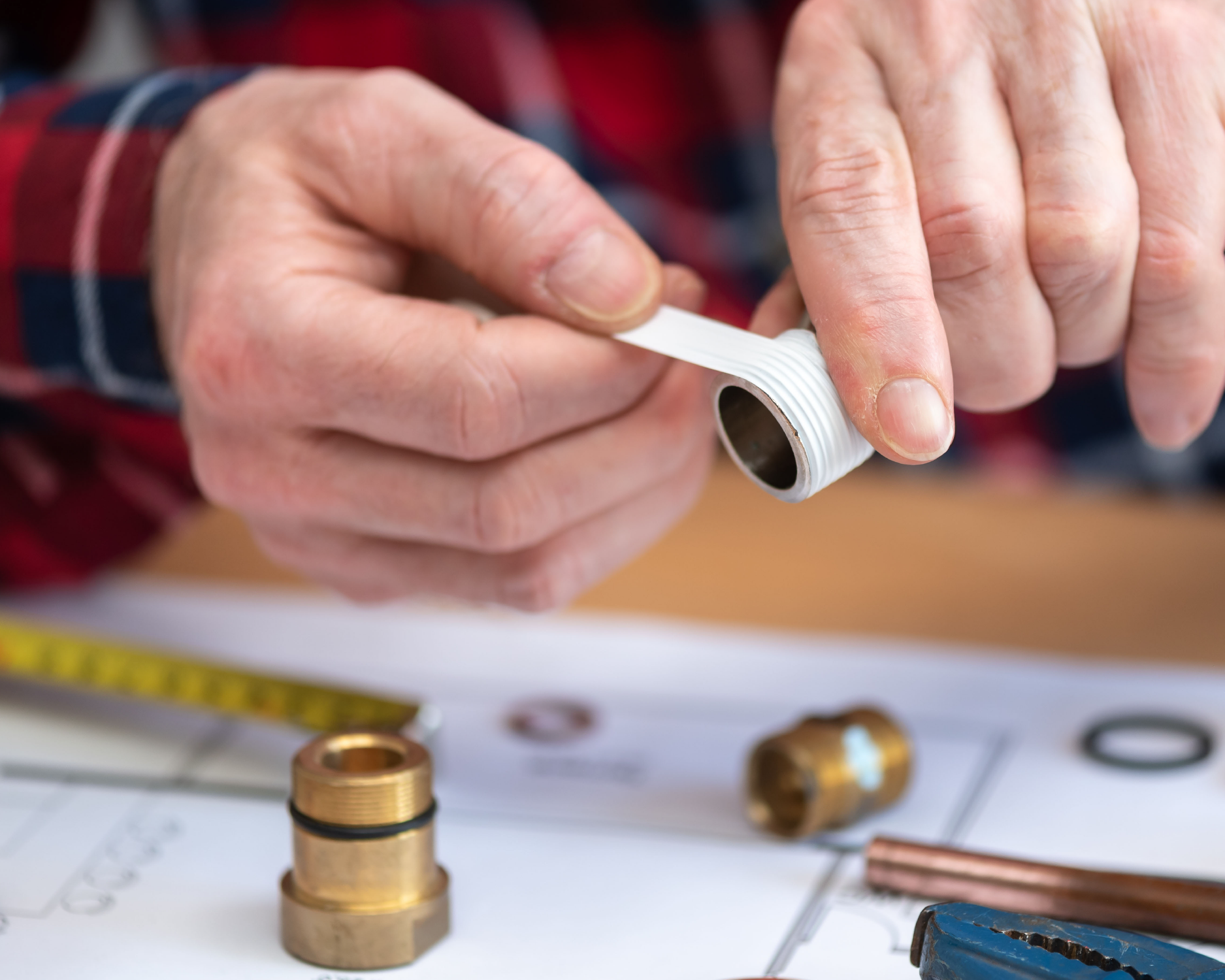
Consider using antifreeze products like Hercules® Universal Cryo-Tek™ Antifreeze to protect pipes from freezing, especially in areas prone to severe cold. Antifreeze lowers the freezing point of water, adding an extra layer of protection.
Pour the antifreeze into your toilet bowl and tank. It will keep the flapper/seals in the toilet tank lubricated and prevent them from dry rotting. Antifreeze should be poured into all shower, tub, floor, and sink drains — basically, any fixture with a trap. This will ensure water in the traps will not freeze while preventing evaporation and maintaining the trap seal.
For step-by-step instructions on how to winterize your plumbing system, read this blog: How to Winterize Your Plumbing and Prevent Frozen Pipes.
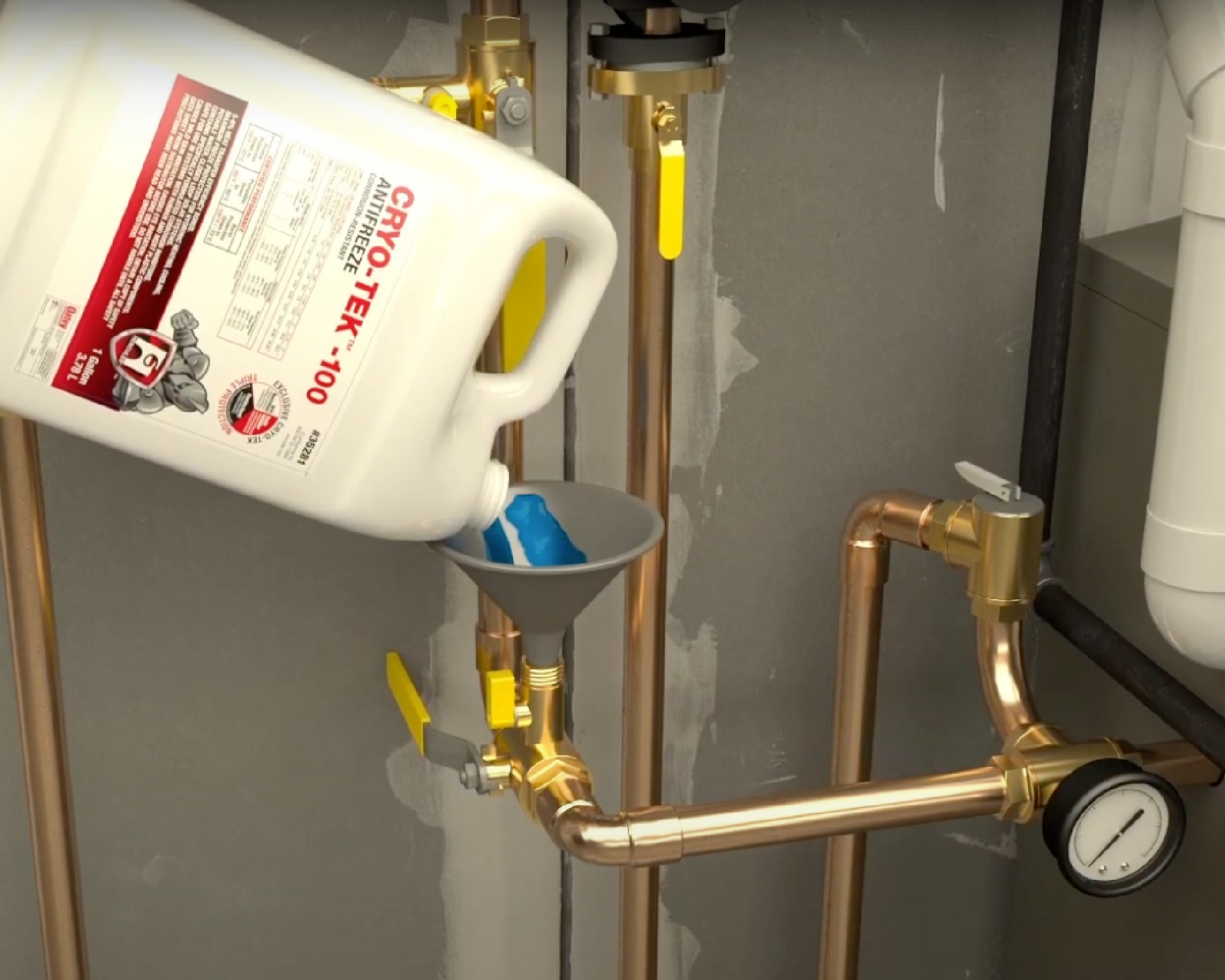
2. Clogged Indoor Drains
Kitchen drains tend to clog more often during the winter due to the increased cooking activity during the holidays. The higher volume of cooking can strain kitchen drains, as fat, oil, and grease tend to solidify in pipes, leading to clogs if not addressed promptly.
Note: Oatey advises contacting a plumber to clear any major drain blockages.
For more persistent problems, professionals will use chemical drain cleaners, which can effectively break down buildup and keep drains clear.
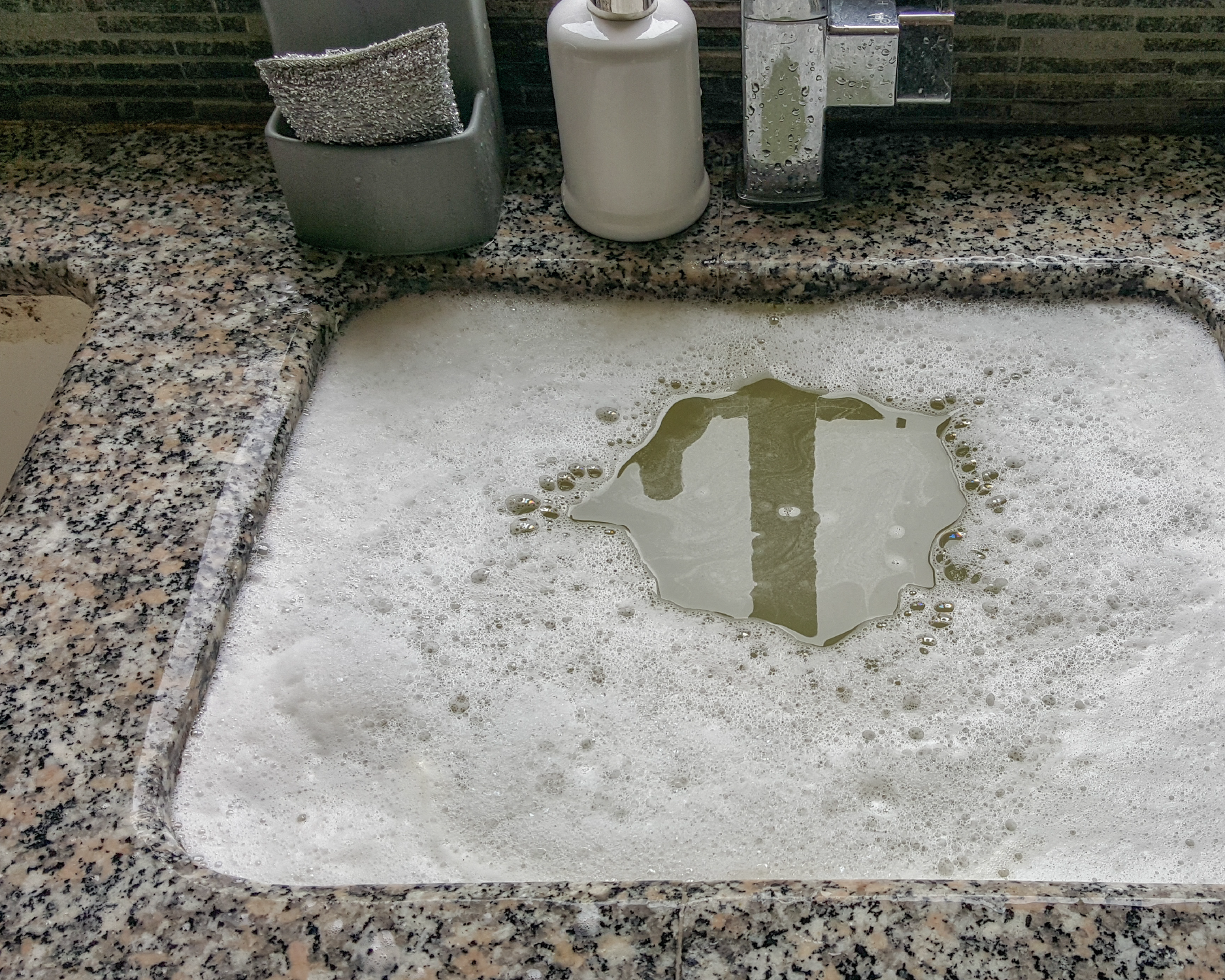
Hercules Glug® Kitchen Liquid Drain Opener is considered the best liquid drain cleaner for clearing a kitchen sink clog. It is formulated to dissolve clogs containing grease and food particles. Safe for garbage disposals, it comes with a deodorizer designed to eliminate food odors in the drainage system.
Another option is Hercules Glug® Crystals Drain Opener, which quickly clears sluggish drains and dissolves grease, hair, soap, food, and other organic material. Note: Glug Crystals Drain Opener is not safe for use with disposals.
Hercules Glug is composed of thousands of tiny sodium hydroxide crystals. Due to their size, these crystals reach a higher maximum temperature faster, dissolving difficult clogs more quickly than other types of openers. On the other hand, prill-based products use sodium hydroxide beads, which are denser and less effective in attaching to and dissolving the clog.
Flow improvers like Hercules® PT-BIO1™ can be used to maintain clean kitchen drains without using harsh chemicals. This solution can eliminate odors on surfaces and act as a cleaner, degreaser, and emulsifier during mechanical snaking.
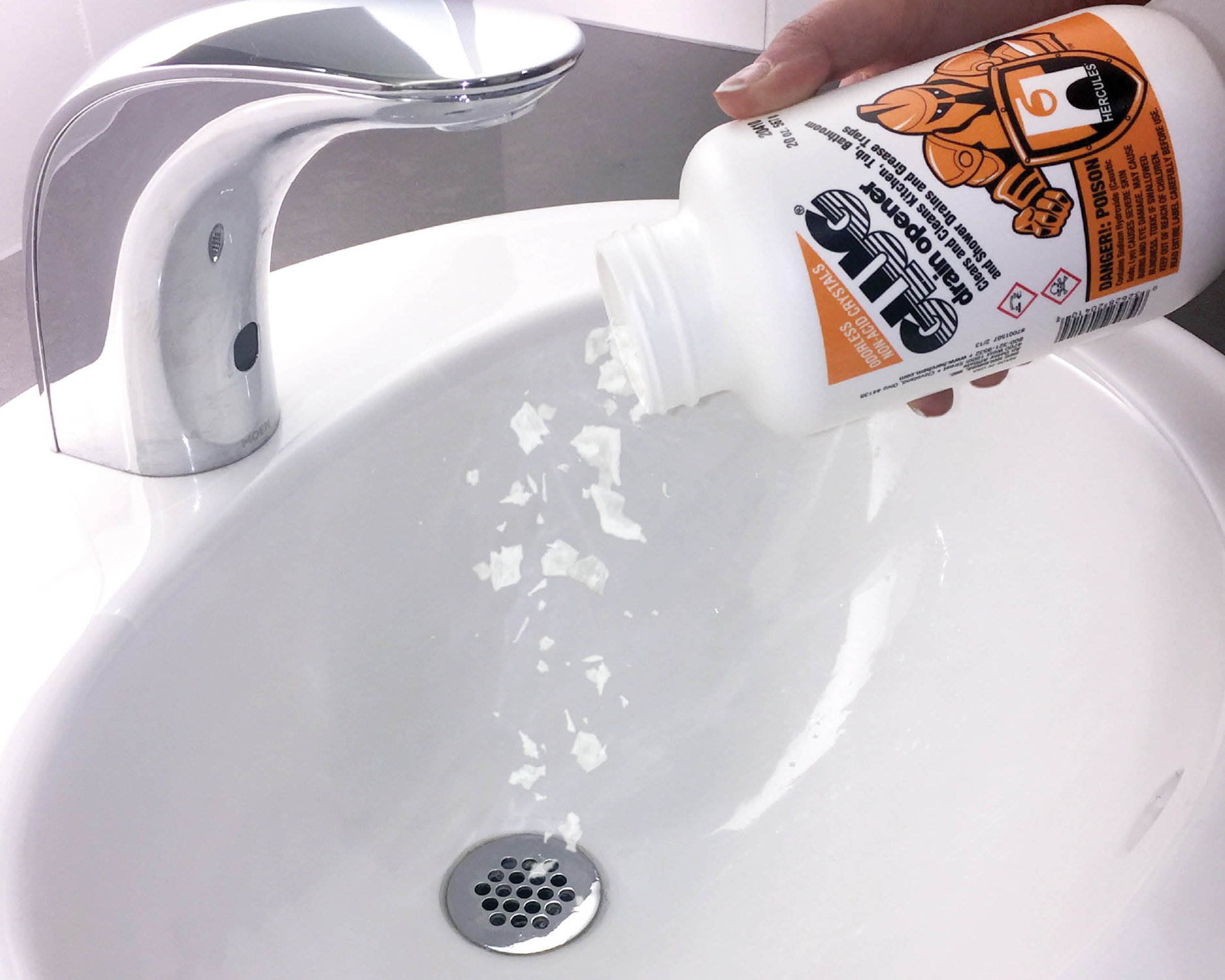
Prevent drain pipes from freezing
In addition, drain pipes should be prevented from freezing, especially if connected to a kitchen or bathroom sink on an outside wall. If a pipe does freeze, running warm water down the drain or using a heating pad or blanket around it can help thaw the ice.
Maintain a healthy kitchen drain
Regular maintenance is critical to preventing clogs. To keep things flowing smoothly, avoid pouring grease down the drain and run hot water after each use. Installing a strainer can also catch food particles before they become a problem.
Read this blog to choose the best drain cleaner for kitchen, bathroom and other drain clogs.
3. Clogged or Damaged Outdoor Drains
Freezing temperatures can cause outdoor drains to crack and clog with ice. This can lead to flooding and damage to your home’s exterior. Preventive measures can safeguard these vital systems.
For outdoor drains and gutters, it’s crucial to clear out any debris before winter from area drains in driveways, patios, or around pools, similar to cleaning gutters to avoid backups during heavy rain or snowfall. If blockages occur, mechanically snaking the line is necessary to allow water to flow freely.
Effective drain maintenance
Regularly clear leaves and debris from outdoor drains. During freezing spells, use salt or deicer to prevent ice buildup that can lead to blockages.
Upgrading for better protection: Consider upgrading to metal drains, which are more resistant to winter damage. They can handle the expansion and contraction caused by freezing and thawing, preventing cracks and breakages.
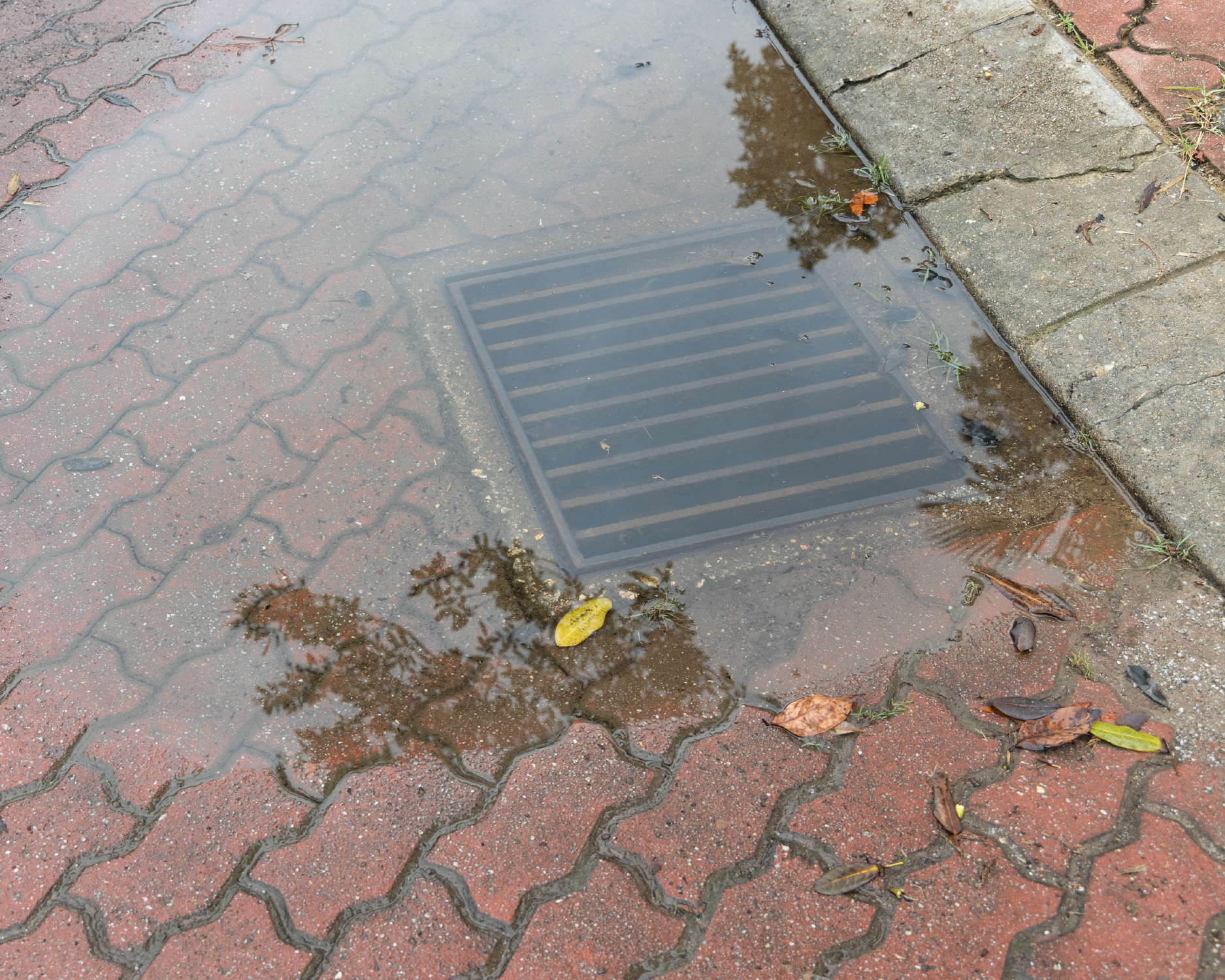
4. Water Heater & Heating System Issues
Water heaters and boilers are another vital consideration, especially as we use them more frequently in colder weather. The main concern is that, with increased usage, issues can start to arise. Preventative maintenance is key to avoiding these problems.
Read this blog to learn how to perform seasonal boiler or heating system maintenance.
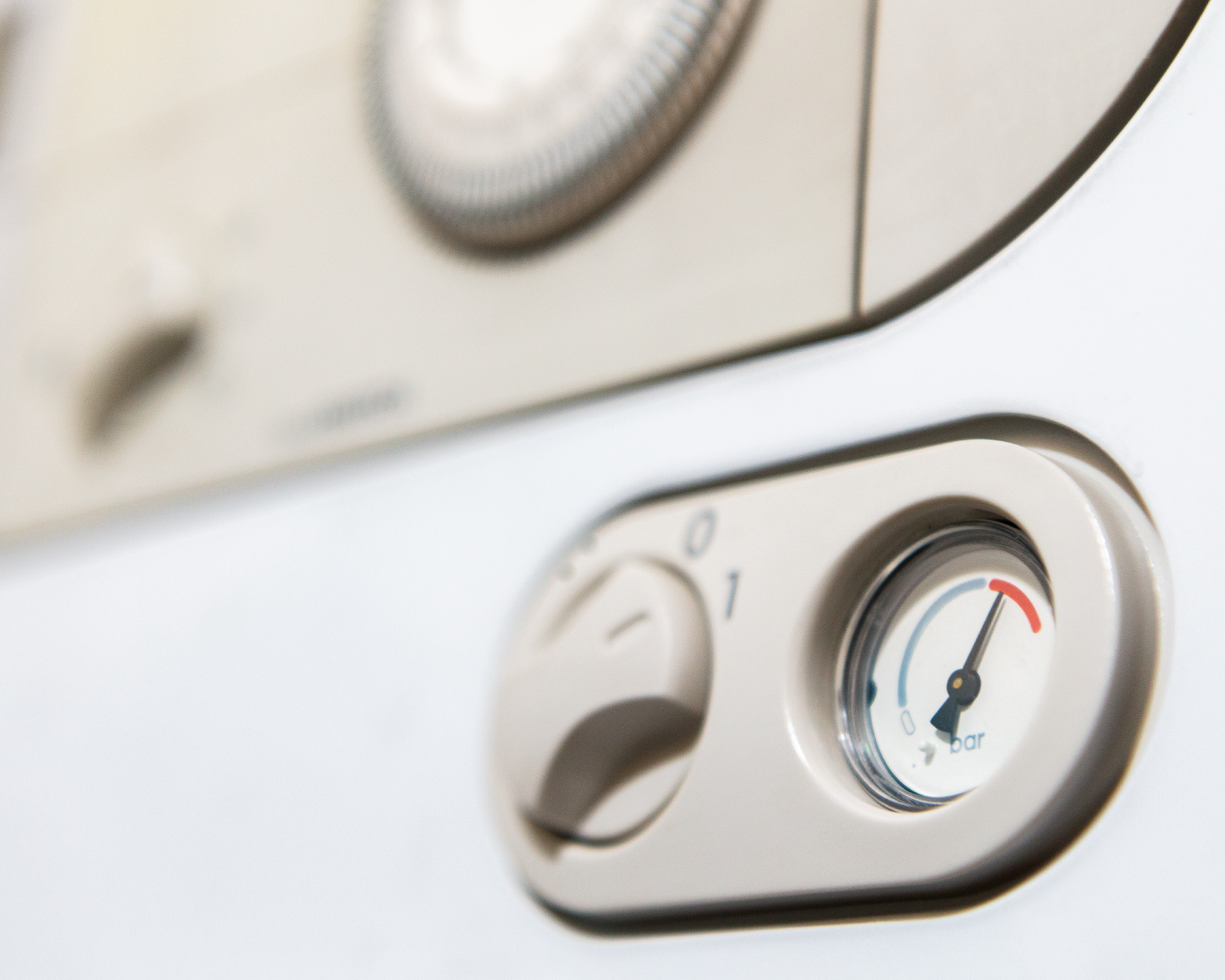
Essential maintenance tips
A visual inspection is often a good first step for water heaters, particularly for those handling domestic hot water. With people spending more time indoors and using more hot water—for cooking, running dishwashers, and so on—the water heater can experience more stress.
If problems do occur, such as the water heater not heating properly, it might require professional repair. While some issues, like a faulty thermocouple (often the reason a pilot light goes out), can be relatively easy to fix, others, like replacing heat exchangers in boilers or gas valves in water heaters, typically require a professional.
Chemicals and cleaners are designed to keep space heating systems, like boilers, running smoothly. These products can help reduce the workload on the boiler, which in turn lessens wear and tear, reducing the likelihood of breakdowns during winter. While they cannot guarantee nothing will go wrong, they can significantly lower the chances.
Read this blog for an in-depth guide on selecting heating chemicals to maintain your heating system.
When to call a professional
If basic troubleshooting does not resolve the issue, it may be time to consult a professional. Persistent problems like leaks, unusual noises, or a complete lack of hot water require expert attention to avoid further damage.
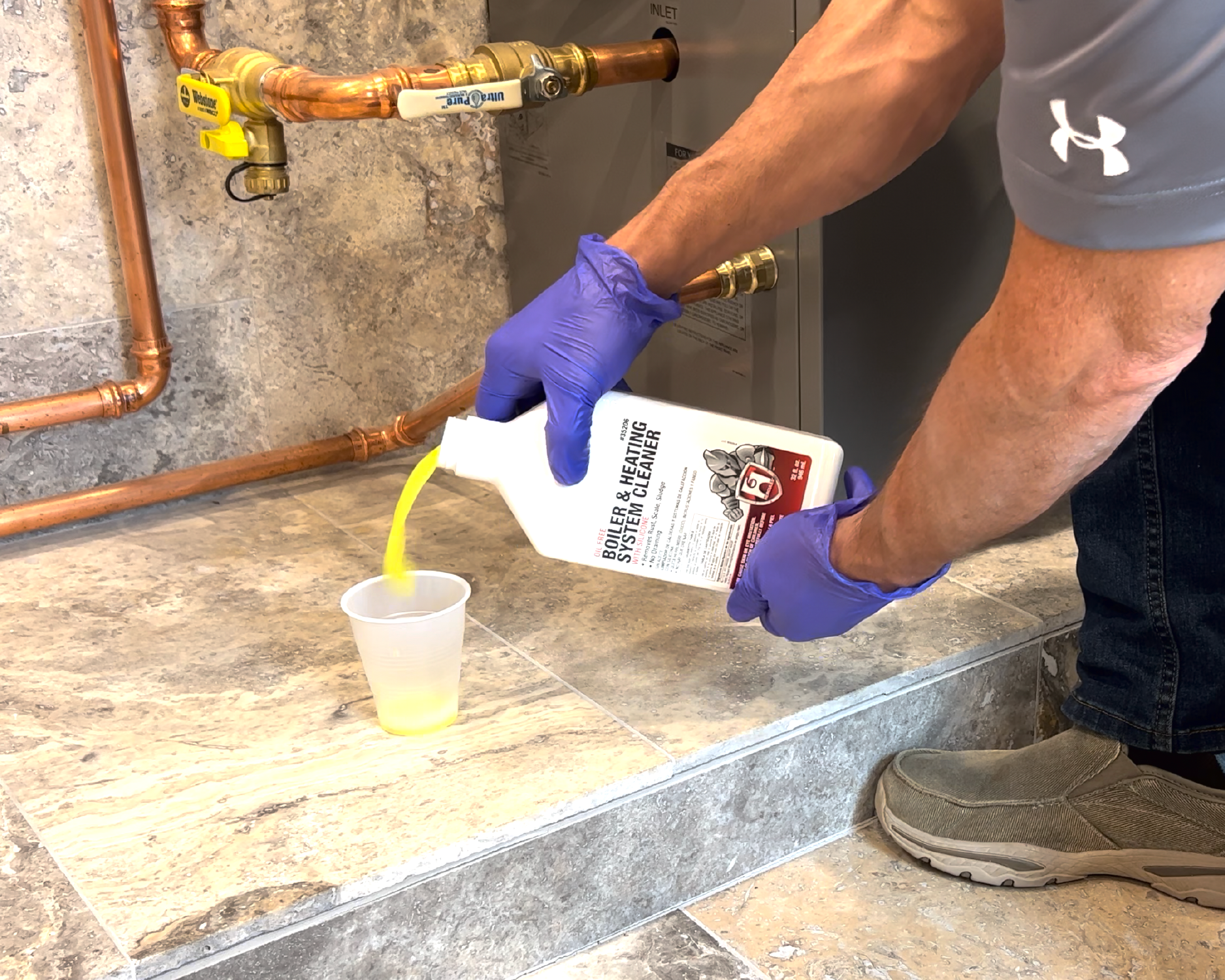
5. Sump Pump Backups
Melting snow and ice can overload sump pumps, leading to backups and potential basement flooding. Ensuring your sump pump is in good working order is essential for protecting your home.
Regularly test your sump pump by pouring water into the pit to ensure it turns on. This helps prevent potential backups and basement flooding. Keep the discharge line clear of obstructions and consider insulating it to prevent freezing.
In areas with heavy snowfall, ensure drainage systems direct melting snow away from your home’s foundation. This will reduce the workload on your sump pump and minimize flooding risks.
Use heat tape around the exposed parts to prevent freezing and potential damage inside the pump. Also, ensure the area where the pump is located is sealed from cold air.
If you live in an area with a high water table, have your basement sump pump inspected before the winter season—with its snowmelt and increased moisture. Regular maintenance can ensure everything is working properly.
If the sump pump fails, it is advisable to contact a professional. However, if you have a spare pump or a small portable pump in your garage, you can use it temporarily by hooking it up to a hose and directing the water outside to minimize damage.
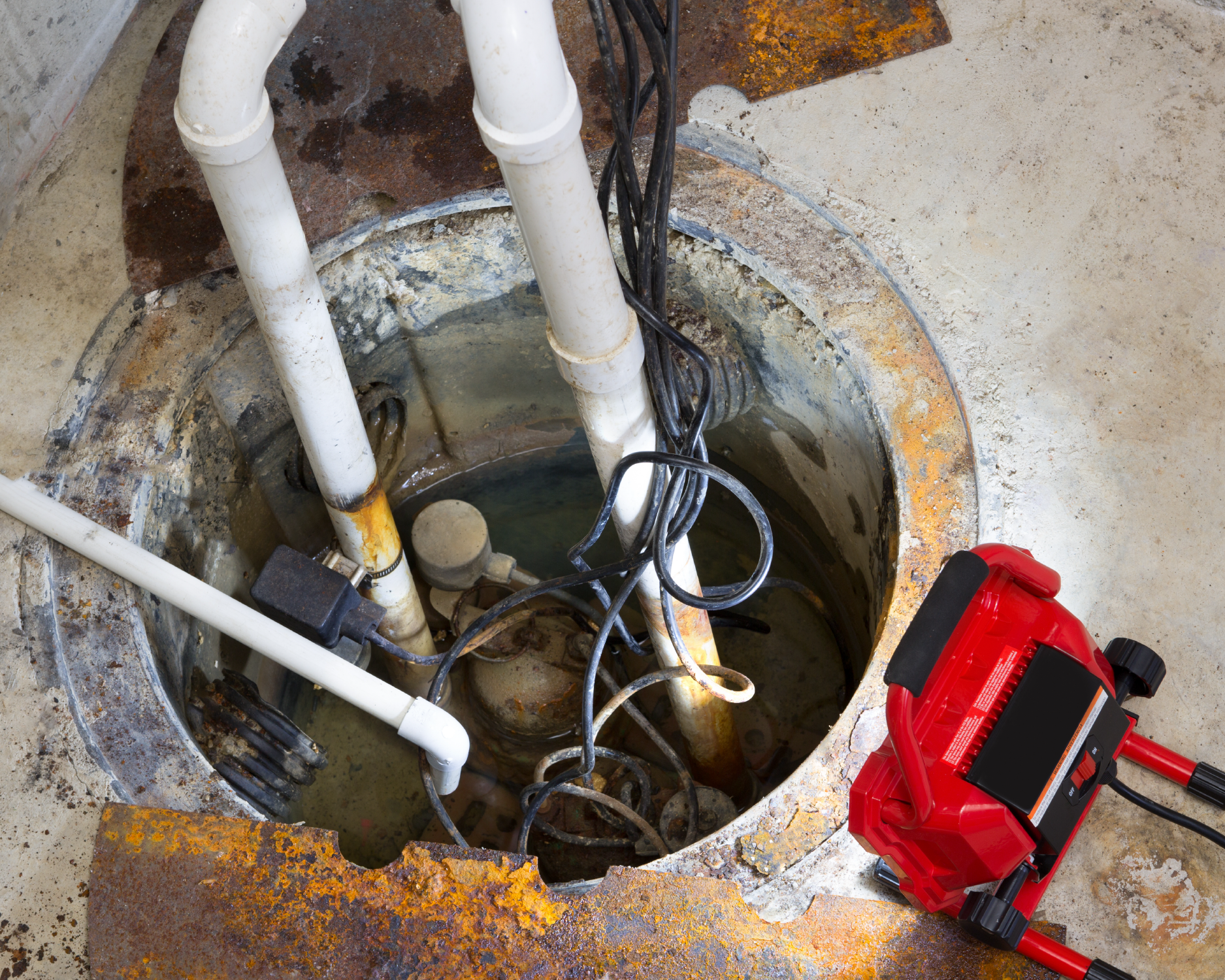
6. Frozen Septic System Lines
How to thaw a frozen septic tank
Frozen septic lines can halt your home’s waste disposal system. To thaw, use a warm water source or a heat lamp to warm the affected area gently. Avoid open flames or harsh chemicals that can damage your system.
Preventing future freezes
Insulate exposed septic lines and add a layer of straw or mulch over septic areas for additional protection. Regularly using your system can also help prevent freezing by keeping the lines warm.
The importance of regular maintenance
Regular septic tank maintenance, including pumping and inspections, ensures your system operates smoothly. Schedule these services before winter to prevent surprises when the ground is frozen, and access is limited.
Check out our complete guide to septic system maintenance, covering maintenance tips for your septic system, common problems to monitor, and how to solve them.
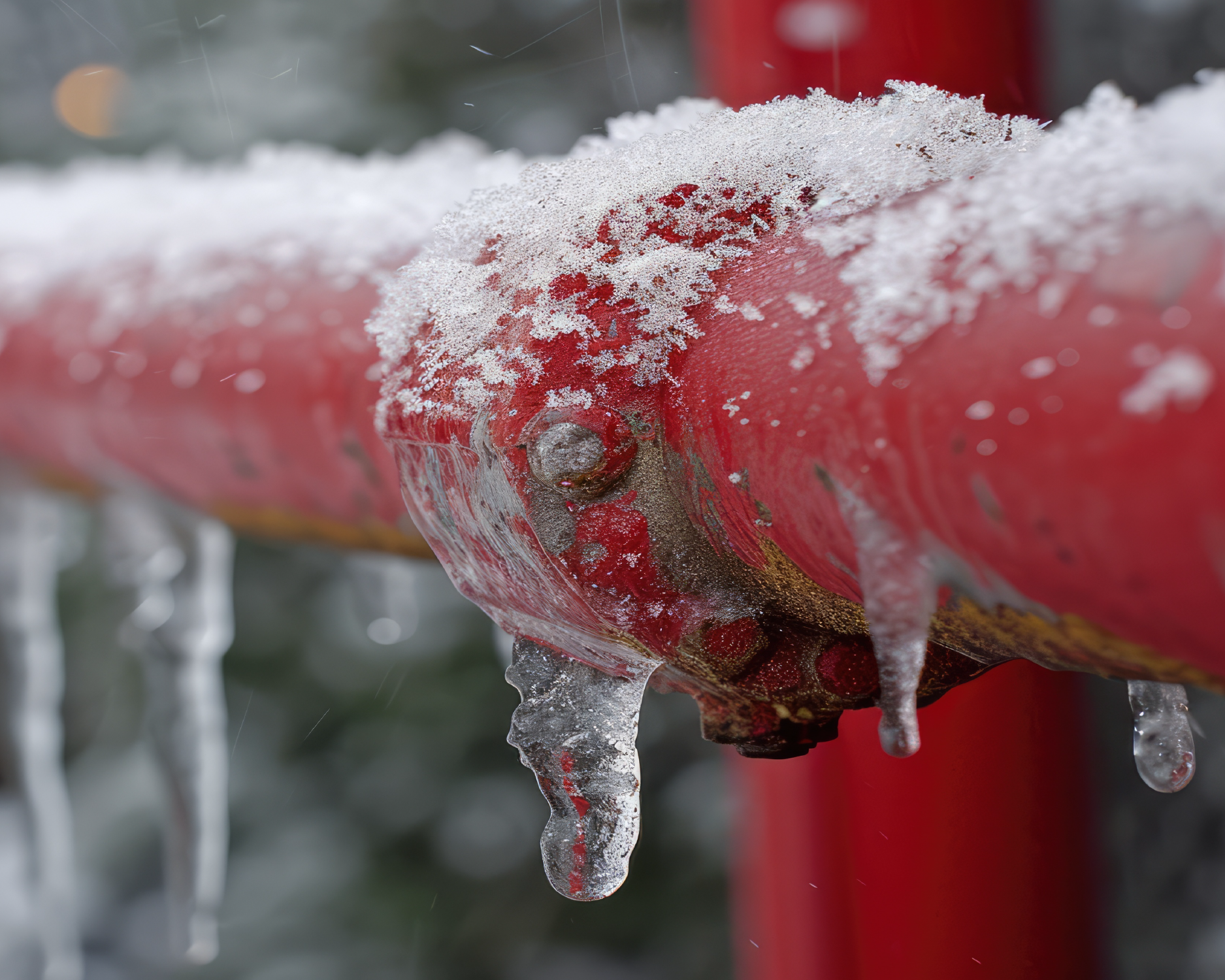
7. Frozen Private Wells
Should I turn off my well pump if the pipes are frozen?
If you suspect your pipes are frozen, turning off your well pump can prevent it from running dry and burning out. Address the freeze first, then gradually restore water flow.
Ensuring well pump efficiency
Insulate your well pump and supply lines to protect them from freezing. Regularly check for leaks or damage that could compromise your system’s efficiency.
Avoiding winter well problems
Keep the area around your well clear of snow and debris. This ensures easy access for maintenance and prevents additional stress on the system from melting snow.
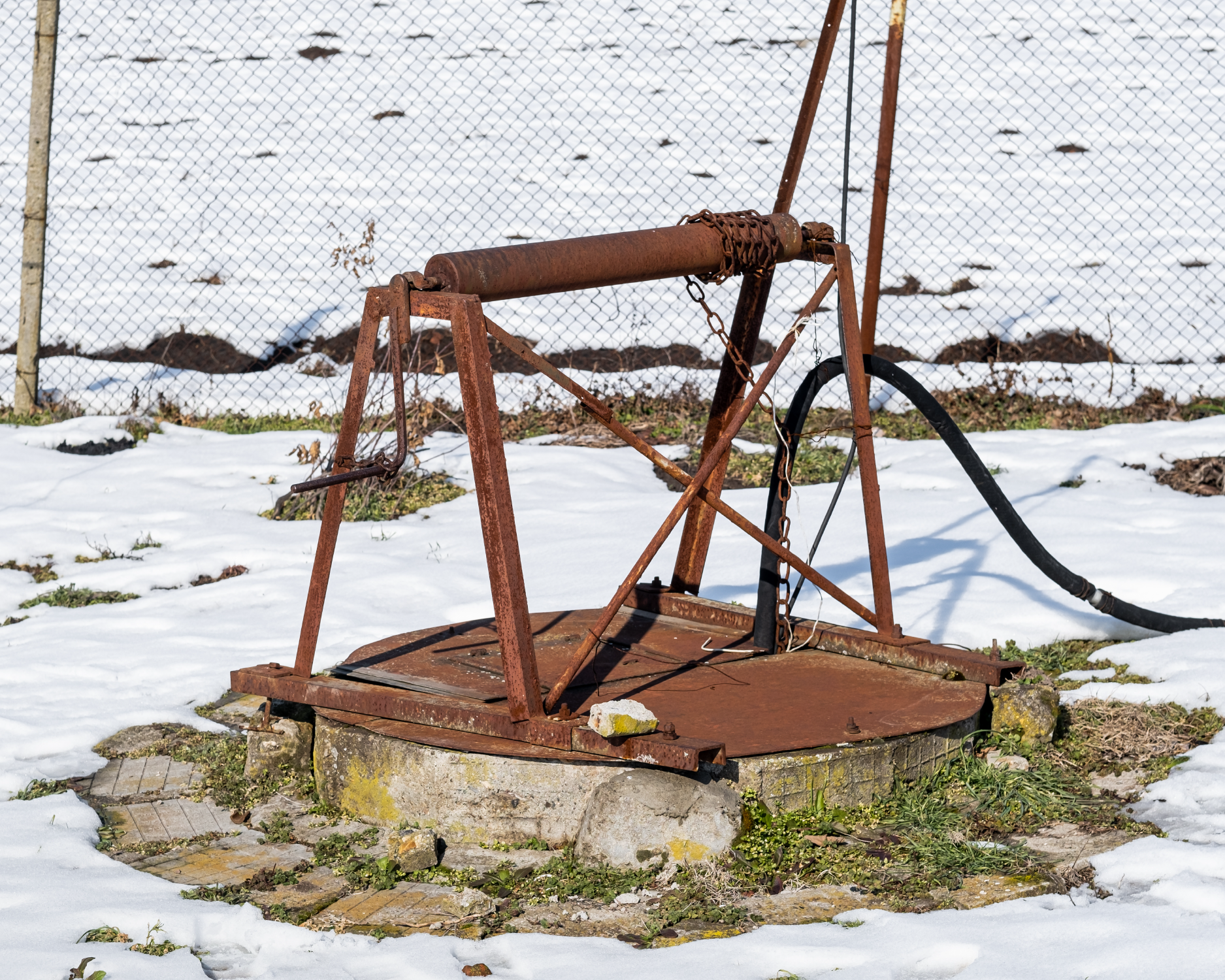
8. Basement Floods
Why Snow Melt Causes Floods
When snow melts too quickly, it can overwhelm drainage systems and seep into basements. Understanding this risk can help you take precautions to protect your home.
Flood Prevention Strategies
Ensure gutters and downspouts are clear and direct water away from your home. If you haven’t already, install a sump pump and check the basement walls for any signs of leakage.
One preventive solution could be to install a backwater valve to tackle the issue of flow reversal. This problem can arise during heavy rainfall or snowmelt when sewer lines are overloaded, causing a surge in water pressure. Backwater valves also provide protection during a power outage, when sump pumps may not be operational, or when there is a blockage in the sewer system.
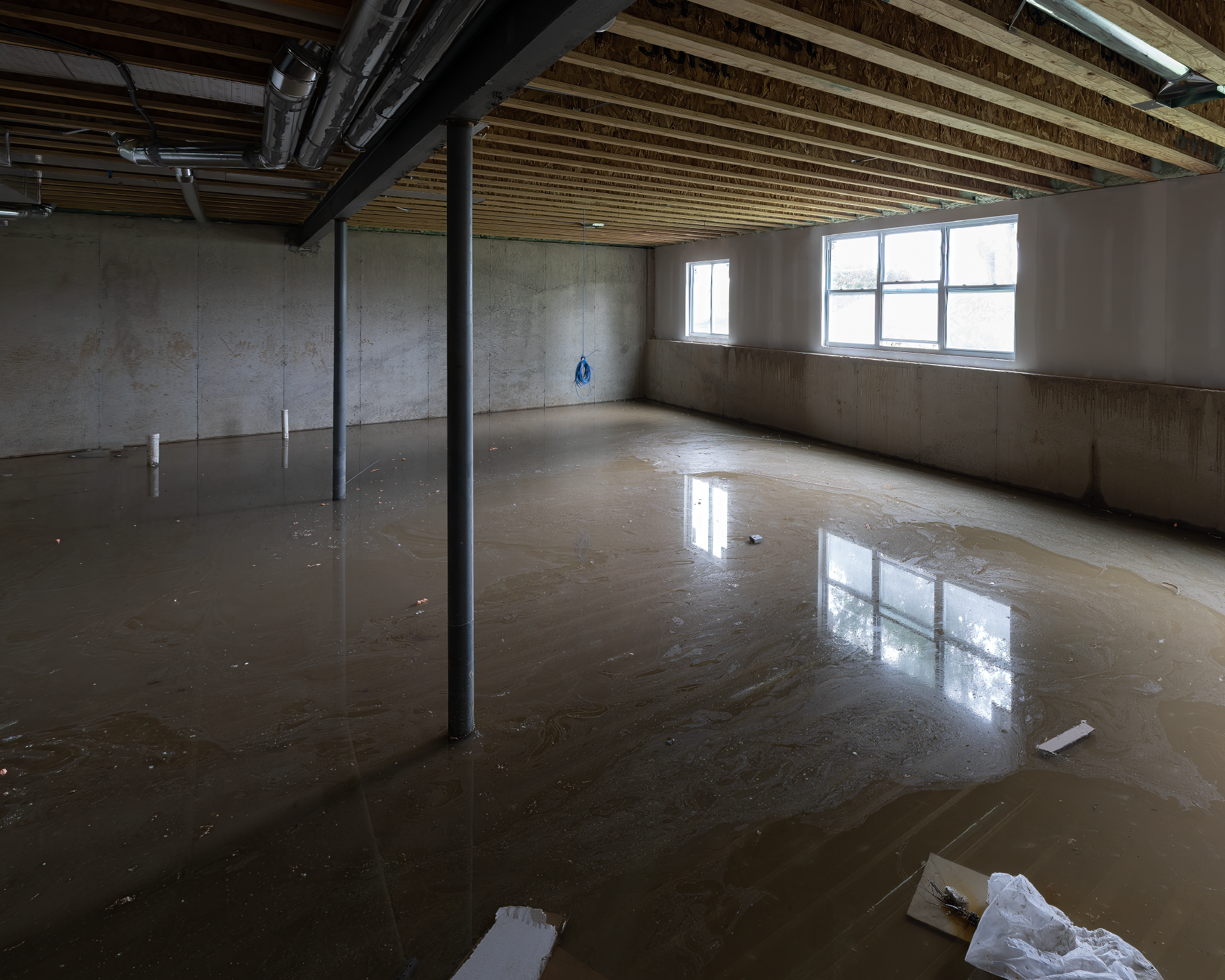
The Oatey® Backwater Valve is designed as a sewage check valve to prevent reverse flow. Its elastomeric seal inside the flapper ensures a tight seal, preventing fluid from entering. Its application is to protect low areas or basements from backflow or waste from street sewers. By ensuring that sewage backup is avoided, this proactive measure lowers the risk of property damage and safeguards the health of individuals occupying the premises.
Quick Response to Flooding
If flooding occurs, act quickly to remove water and dry the area. Dehumidifiers and fans can help prevent mold growth and further damage. Address the source of the flood to prevent future incidents.
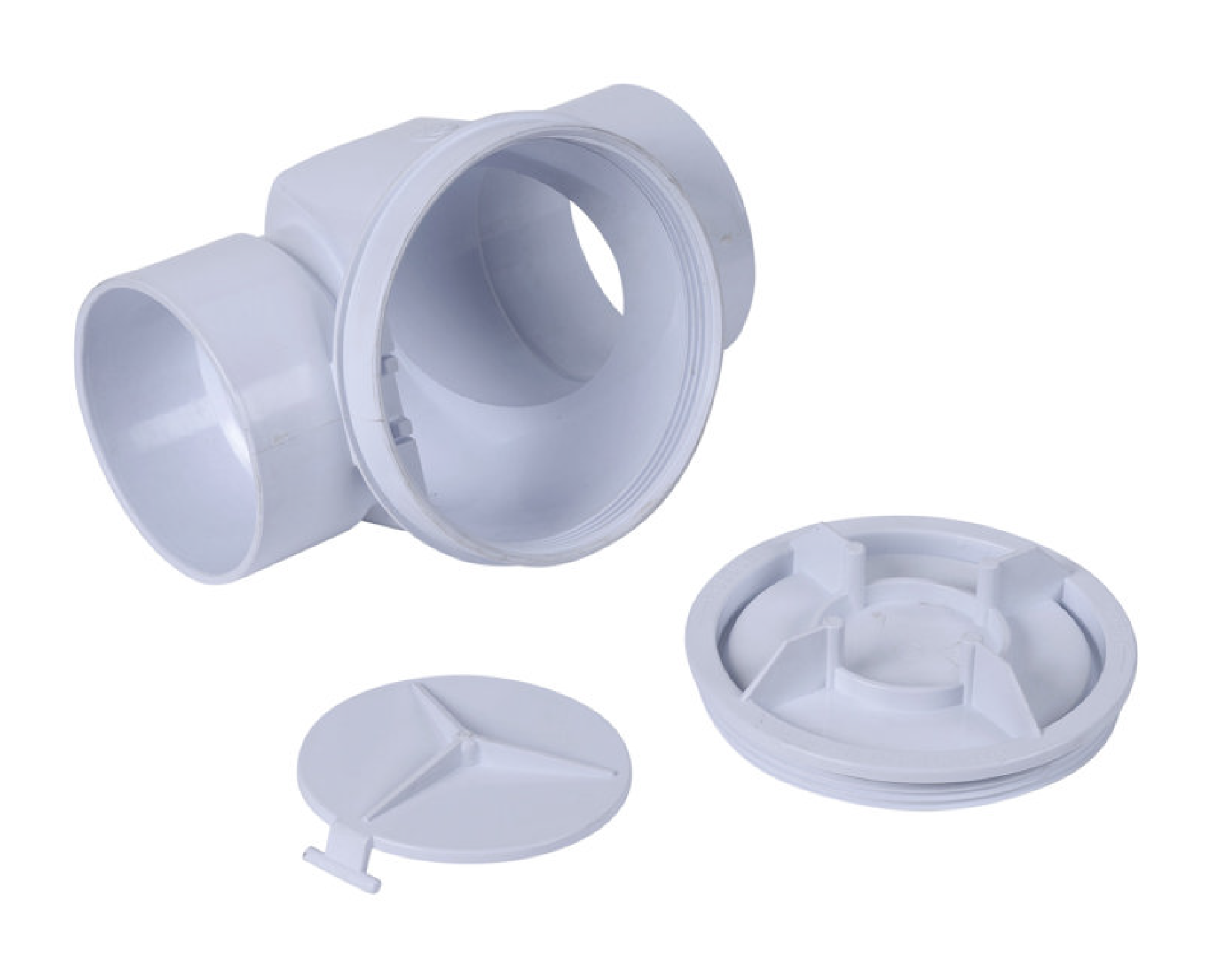
Winter poses unique challenges to your plumbing system, but with the right knowledge and tools, you can protect your home from common winter plumbing problems. By following the tips and advice outlined in this guide, you can enjoy a warm and worry-free winter.
Remember, preparation is key. Use Oatey products to ensure your plumbing is in top shape and ready to withstand whatever winter throws your way. For more specific guidance, consider consulting a professional plumber.
Stay warm, and keep your plumbing running smoothly all winter long!